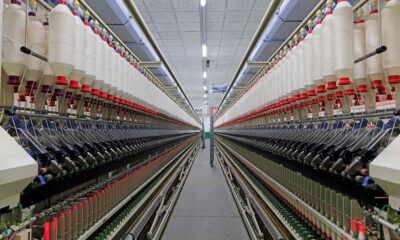Business
Withdrawal Of BIS Quality Control Orders: Landmark Step For Industry And Ease Of Doing Business
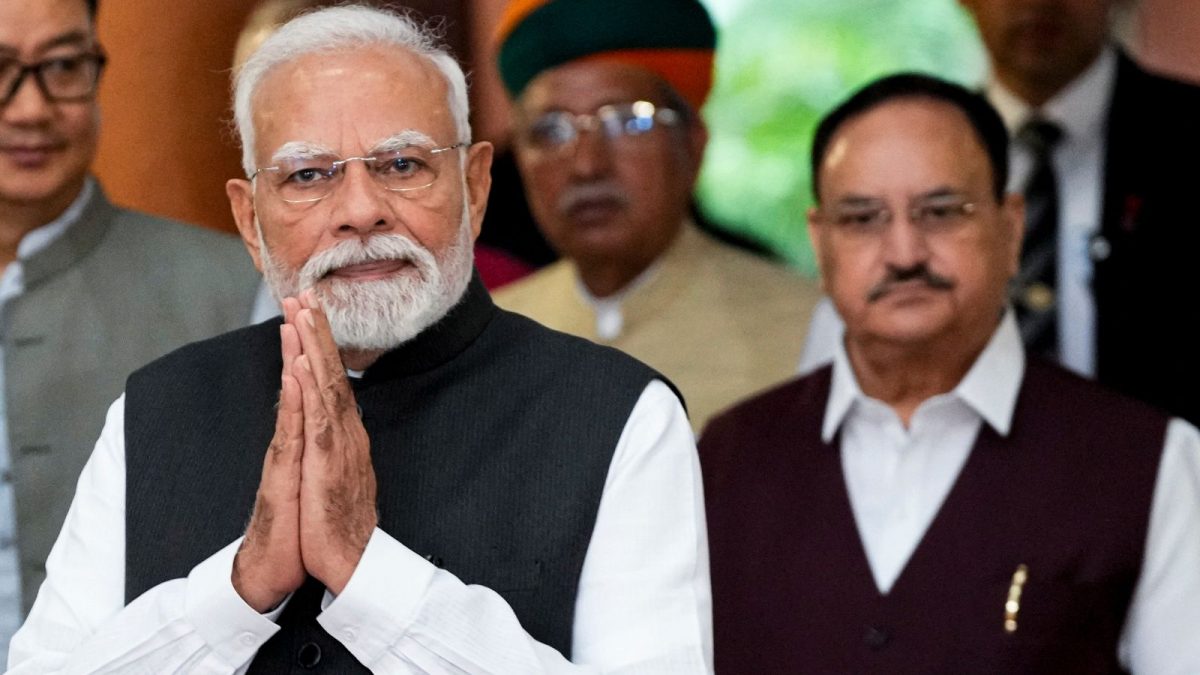
Last Updated:
The move aims to ensure raw material availability, ease import constraints, and lower input costs for downstream MSMEs in the packaging, textile, and moulding sectors

The decision reflects the government’s responsive governance approach, recognising that self-regulation, innovation, and international standards can effectively ensure quality in mature industries. File pic/PTI
The Government of India has withdrawn 14 BIS Quality Control Orders covering key chemical, polymer, and fibre-based materials, indicating a major shift towards industry liberalisation and reduced regulatory burden.
This will come into effect immediately from the date of Gazette publication without any transition delay, government sources said.
There is major relief for the chemical, plastics, and textile sectors, as the Government of India has withdrawn Quality Control Orders (QCOs) covering several key polymer and fibre intermediates, including Terephthalic Acid, Ethylene Glycol, Polyester Yarns and Fibres, and major plastics such as Polypropylene, Polyethylene, PVC, ABS, and Polycarbonate.
The move, announced by the Ministry of Chemicals and Fertilisers, aims to ensure raw material availability, ease import constraints, and lower input costs for downstream MSMEs in the packaging, textile, and moulding sectors.
By removing mandatory BIS certification, the government has simplified compliance procedures, eliminated duplication of testing, and accelerated approvals for manufacturers and importers, which will improve operational efficiency and competitiveness, said sources.
Industry leaders have welcomed the decision as pragmatic and growth-oriented, calling it a step towards improving competitiveness, supporting exports, and promoting “Make in India” by balancing quality norms with ease of doing business.
According to the sources, this decision reflects the government’s responsive governance approach, recognising that self-regulation, innovation, and international standards can effectively ensure quality in mature industries.
The News Desk is a team of passionate editors and writers who break and analyse the most important events unfolding in India and abroad. From live updates to exclusive reports to in-depth explainers, the Desk d…Read More
The News Desk is a team of passionate editors and writers who break and analyse the most important events unfolding in India and abroad. From live updates to exclusive reports to in-depth explainers, the Desk d… Read More
November 13, 2025, 19:09 IST
Read More
Business
39% of adults want to see ultra-processed foods banned – survey

Two thirds of UK adults believe the next generation will suffer poorer health due to ultra-processed foods (UPFs) and 39% would like to see them banned, a survey suggests.
Some 59% of adults believe UPFs are “impossible to avoid” when shopping on a budget, the study for retailer Lakeland found.
Two thirds (66%) are worried about their effects on public health and 68% believe the Government should do more to protect people from them.
Two thirds (66%) also think supermarkets should take more responsibility for the UPFs they sell, and 77% want clear warning labels on food containing ultra-processed ingredients.
Three quarters (74%) say children should be taught at school about the dangers of UPFs and the importance of home cooking.
The survey found a quarter of adults (24%) do not know how to recognise the presence of UPFs in food products.
It found 31% have been cooking from scratch more in the last year, with 35% more in the last two years, and 44% in the last five years.
A fifth (19%) are cooking from scratch more regularly to avoid UPFs, while 25% are cooking from scratch more to save money and 26% for other health benefits.
However 44% say they do not have time to cook from scratch, 16% believe it is too complicated and 19% they think it would cost too much.
Wendy Miranda, customer brand ambassador at Lakeland, said: “There are clear benefits to cooking from scratch and knowing exactly what is going into the food we eat.
“We encourage our customers to think of the benefits, from nutrition to mindfulness to improving overall energy levels and simply feeling a sense of personal achievement with each cooking creation.”
The survey follows global experts warning that UPFs are a leading cause of the “chronic disease pandemic” linked to diet, with food firms putting profit above all else.
Writing in The Lancet medical journal in November, 43 scientists and researchers joined forces to argue that UPFs are “displacing” fresh foods and meals, worsening diet quality, and are linked to multiple chronic diseases.
Philip Toscano, including an increased risk of obesity, heart disease, cancer and early death.
Examples of UPFs include ice cream, processed meats, crisps, mass-produced bread, some breakfast cereals, biscuits, many ready meals and fizzy drinks.
UPFs often contain high levels of saturated fat, salt, sugar and additives, which experts say leaves less room in people’s diets for more nutritious foods.
UPFs also tend to include additives and ingredients that are not used when people cook from scratch, such as preservatives, emulsifiers and artificial colours and flavours.
The dietary share of UPFs remains below 25% in countries such as Italy, Cyprus, Greece, Portugal and across Asia, but it is 50% in the US and UK, the research said.
Mortar Research surveyed 2,000 UK adults in January.
Business
Adani to invest 1.5L cr in Kutch – The Times of India
Business
Inflation targeting-lite: strategic transition or operational stopgap? | The Express Tribune
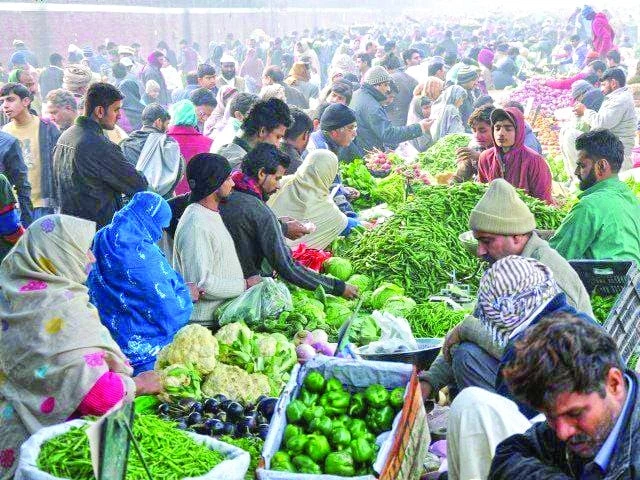
In Pakistan, tight monetary policy coincides with increasing inflation due to supply shocks, which undermine rate sign
Market analysts caution that IMF-related measures in the upcoming FY2026 budget—particularly new taxes and adjustments in energy prices—may lead to a renewed spike in inflation. PHOTO: FILE
MICHIGAN/KARACHI:
In August 2009, the State Bank of Pakistan (SBP) officially changed its monetary policy framework from monetary aggregate targeting to interest rate-based monetary policy framework called the inflation targeting-lite regime by introducing the interest rate corridor (IRC).
Within international systems, the adoption of IRC would be a transitional move for implementing a flexible or full-fledged inflation targeting monetary policy framework, where the policy rate is used as a primary tool for anchoring inflation expectations (Stone, 2003). Indeed, most of the inflation targeting central banks place corridor systems not only to stabilise overnight rates but to anchor these rates around a policy rate to strengthen monetary policy transmission and policy signalling. This has been quite contrary to the case of Pakistan, where a significant domestic literature and official SBP communication, such as working papers, research bulletin, and policy notes emphasise that the IRC was introduced as a means of reducing volatility in the weighted average overnight repo rate (repo), which has weakened policy signalling and disrupted money markets (Mahmood, 2016).
Moreover, the SBP’s working papers and policy notes also document how liquidity shocks, often driven by government cash flows and FX operations, caused overnight rates to deviate from the policymakers’ desired levels prior to 2009. The objective of reducing volatility in the repo, being operationally valid, goes against the global justification of inflation targeting-lite regime, that is, reduction in volatility is not an objective but a by-product of a smooth and coherent monetary system. Thus, the IRC was implemented into an economy where the macroeconomic conditions for interest rate-led inflation control were partially established.
It would not be the design of corridor which is challenging but the surroundings where it functions. The inflationary trends in Pakistan are heavily influenced by administered prices, especially energy, college tuition, and regulated food items, which can get adjusted through fiscal adjustments but not market forces. These non-continuous changes, which are frequently large and discrete, can undermine the relationship between policy rate and headline inflation. Consequently, the tight monetary policy coincides with increasing inflation due to supply shocks, which undermine interest rate signalling.
Pakistan is simultaneously experiencing the limitations of the monetary policy trilemma. External imbalances and exchange rate pressures are persistent, which often leads to the balance of payments conditioning of monetary policy decisions. Practically, this leads to the phases where interest rate is as influenced by external stability as it is influenced by domestic inflation and output growth. As a result, liquidity shocks are generated by FX interventions that the IRC must absorb to stabilise the money markets. This strengthens the IRC’s role as the stabiliser of money markets and not as an anchor of expectations.
Such limitations highlight why the inflation targeting regime, be it strict or flexible, has eluded it even though this has been expressed in terms of policy aspiration in the SBP’s Vision 2016-2020. Demand-driven inflation, flexible exchange rate, and limited fiscal dominance are the key elements required to stipulate inflation targeting. However, these conditions are fulfilled partially in Pakistan, which results in a system where the objective of inflation targeting exists but with a weak functional core.
Notably, this does not mean that Pakistan should drop the interest rate corridor or adopt monetary aggregates targeting. Neither does it imply that the targeting of inflation should be mechanically adopted and that structural reality be violated. The important step is to implement a transparent and flexible structure, which highlights and acknowledges Pakistan’s constraints and not obscure them.
This type of structural framework whose primary medium-term objective should be price stability, and policy is carried out with clear secondary constraints, the most important of which is external stability and administered price shocks. Rather than a point target, a medium-term inflation rate is announced by the central bank with special concentration on forecasts made publicly available. This will ensure transparency of the framework and add to the credibility stock of the central bank. Deviations that are temporary are acceptable, if they are well explained. This framework would ensure that instead of hidden goals, exchange rate pressures, reserve adequacy, and risk premium are treated as the conditioning variables. The decisions on policy rates have been explained as weighing between inflation stabilisation and external sustainability as a reminder of discretion with accountability. Credibility is anchored on transparency.
In this context, the policy rate role is re-defined. It is no longer supposed to tighten or loosen demand or to counteract the inflation produced by supply mechanisms. Rather, it pegs expectations over the medium term, constrains second-round effects and conveys commitment when the economy is under strain. The interest rate corridor appropriately works as a liquidity management tool, which ensures that there is smooth market functioning with operational control, without the strains associated with the responsibility of macroeconomic credibility, on its own.
In the long run, this structure enables sequencing as opposed to being subject to shock therapy. Reforms in administered pricing, improvement in exchange rate flexibility and reduction in fiscal dominance may relax the constraints on monetary policy over time. Flexible inflation targeting then develops naturally, as a matter of adaptation and not imitation. The introduction of the IRC to Pakistan provides more of a general lesson, that is, the sophistication of operations cannot replace the clarity of strategy.
By taking its monetary framework and its structural realities to be in accord with each other, and by ensuring the trade-offs are clear, the SBP can get closer to inflation targeting, not as an imported model, but rather as a nationally consistent policy regime.
Dr Ateeb Syed is a visiting professor of economics at Grand Valley State University, Allendale, Michigan and Tayyaba Kamran is a research assistant at the Economic Growth and Forecasting Lab, IBA
-

 Entertainment4 days ago
Entertainment4 days agoWhy did Nick Reiner’s lawyer Alan Jackson withdraw from case?
-

 Sports7 days ago
Sports7 days agoVAR review: Why was Wirtz onside in Premier League, offside in Europe?
-

 Entertainment4 days ago
Entertainment4 days agoDoes new US food pyramid put too much steak on your plate?
-

 Politics4 days ago
Politics4 days agoUK says provided assistance in US-led tanker seizure
-

 Business4 days ago
Business4 days agoTrump moves to ban home purchases by institutional investors
-
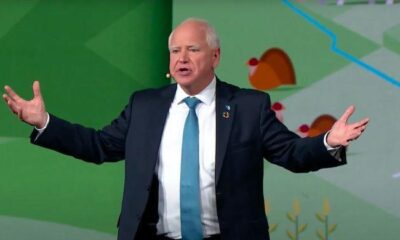
 Entertainment7 days ago
Entertainment7 days agoMinnesota Governor Tim Walz to drop out of 2026 race, official confirmation expected soon
-
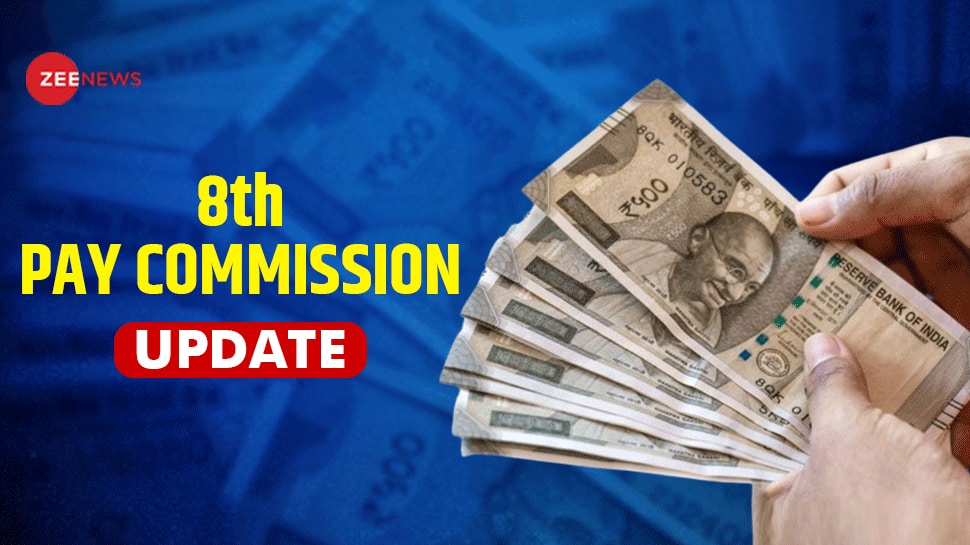
 Business7 days ago
Business7 days ago8th Pay Commission: From Policy Review, Cabinet Approval To Implementation –Key Stages Explained
-

 Politics7 days ago
Politics7 days agoChina’s birth-rate push sputters as couples stay child-free










